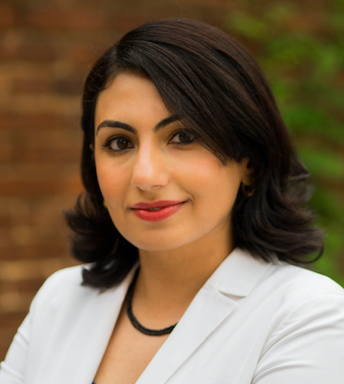Dr. Sarah Ostadabbas Assistant Professor
Electrical and Computer Engineering
Northeastern University

Sarah Ostadabbas is a second year assistant professor at the Electrical and Computer Engineering Department of Northeastern University (NEU). Sarah joined NEU from Georgia Tech, where she was a post-doctoral researcher following completion of her PhD at the University of Texas at Dallas in 2014. At NEU, Sarah has recently formed the Augmented Cognition Laboratory (ACLab) with the goal of enhancing human information-processing capabilities through the design of adaptive interfaces via physical, physiological, and cognitive state estimation. These interfaces are based on rigorous models adaptively parameterized using machine learning and computer vision algorithms. Sarah has over five years of experience developing human-machine interaction technologies successfully bridging artificial intelligence (AI) and human intelligent amplification (IA) fields. With the support of an NSF SBIR grant in 2013, as the PI, she was involved in the commercialization of a decision-support software/interface to prevent pressure ulcers in bed-bound patients by suggesting a resource-efficient posture changing schedule. While being based on a theoretical/analytical framework, at the same time, her solutions aim to address the required system integration challenges presented in the human-centric designs. The first step for most projects at ACLab is creating a framework to estimate the coupling between the user and the machine: that is how rapidly and accurately the user perceives information related to their environment, or how rapidly they can send commands to the machine. The second step is to use this model to create an interface to maximize this information transfer. When the goal is to replace functionality lost to disease or disability, it is called “digital prosthetics”. When the goal is to increase human functionality beyond the norm, it is called “intelligence amplification”. For many of these projects, augmented reality (AR) and virtual reality (VR) tools are essential for both the assessment and enhancement portions of the project. Professor Ostadabbas is the co-author of more than 40 peer-reviewed journal and conference articles, and is an inventor on two US patent applications. She is a member of IEEE, IEEE Women in Engineering, IEEE Signal Processing Society, IEEE EMBS, IEEE Young Professionals, and ACM SIGCHI.
